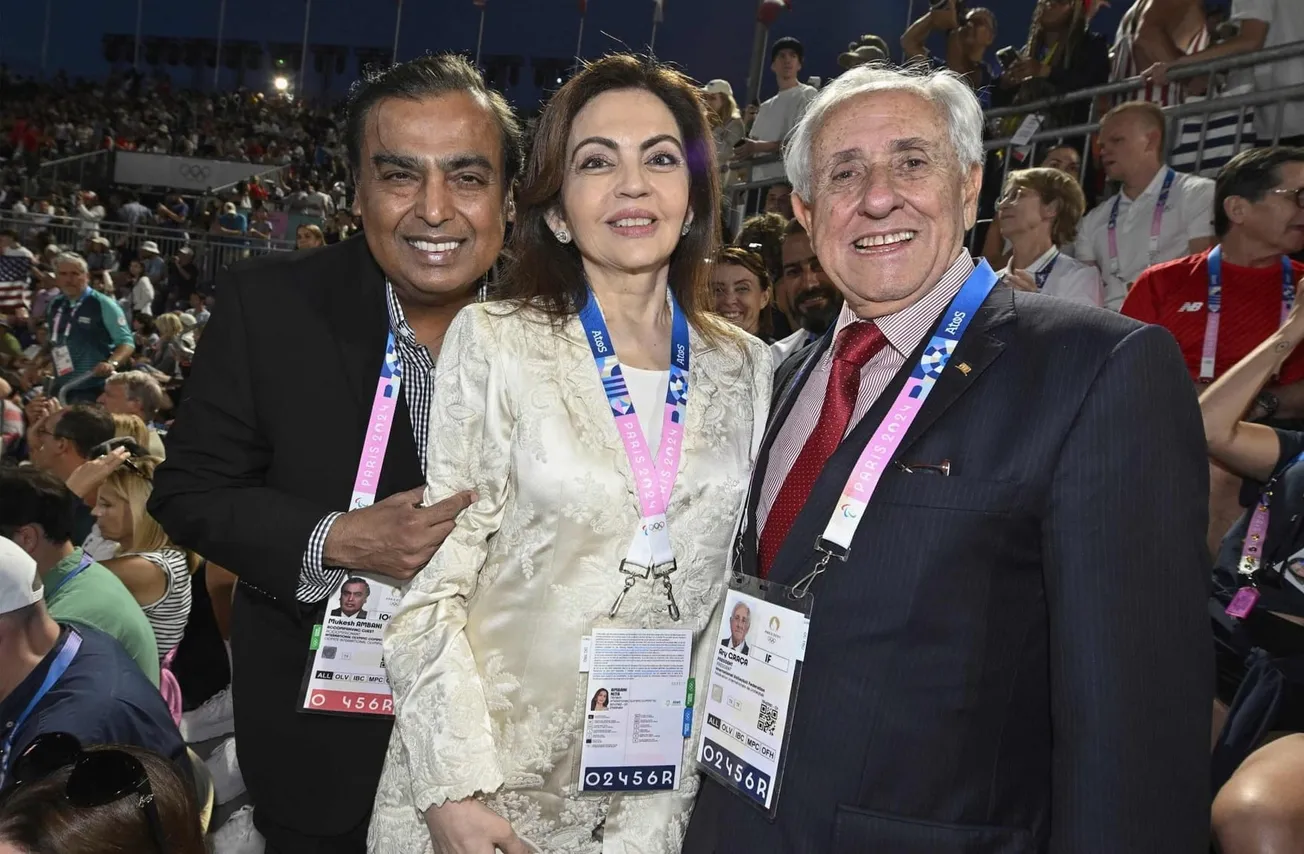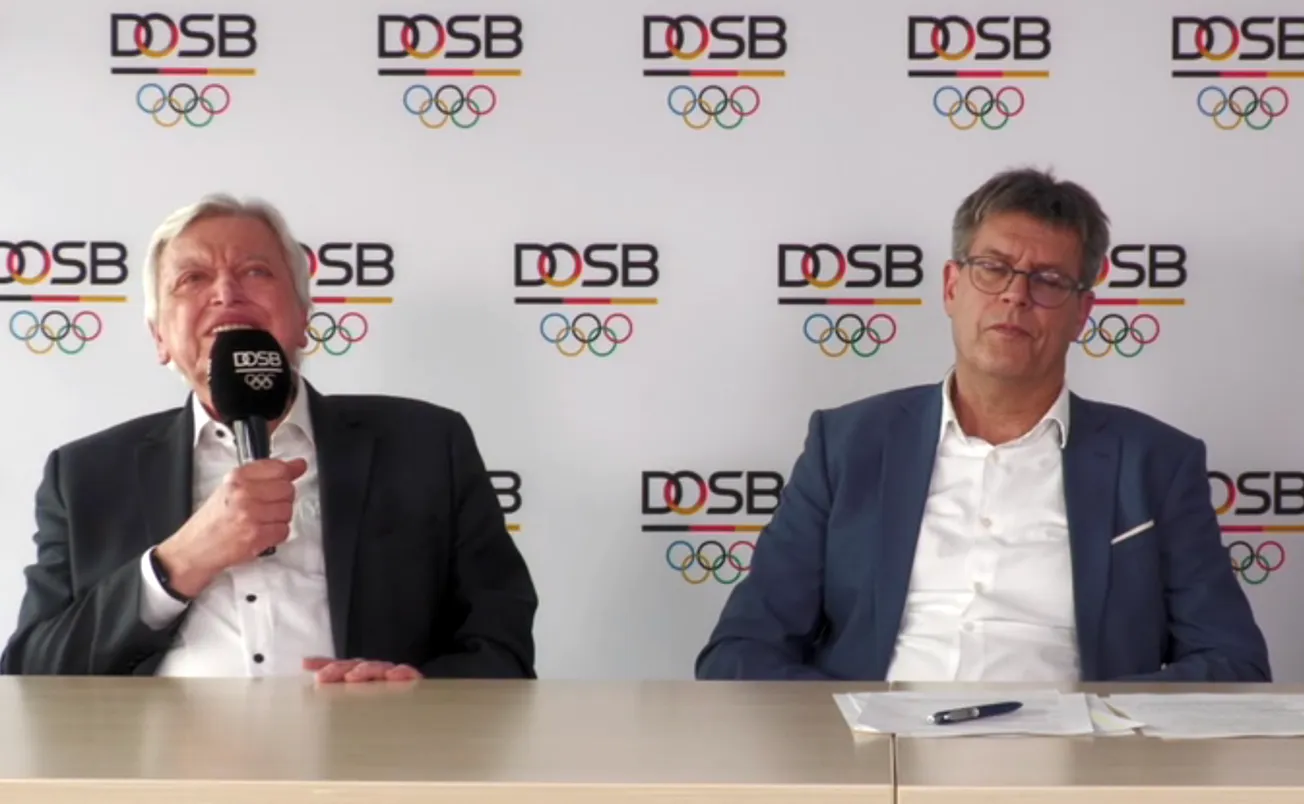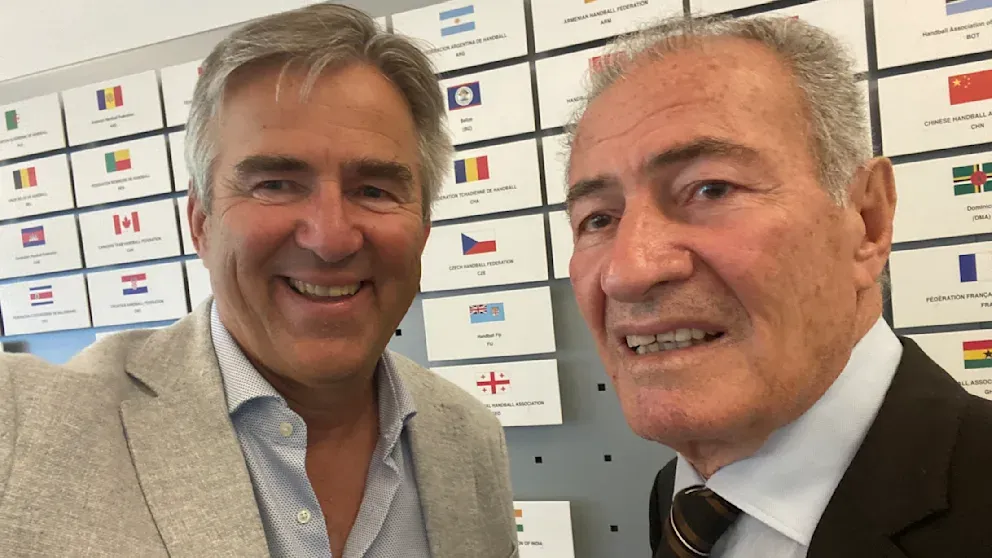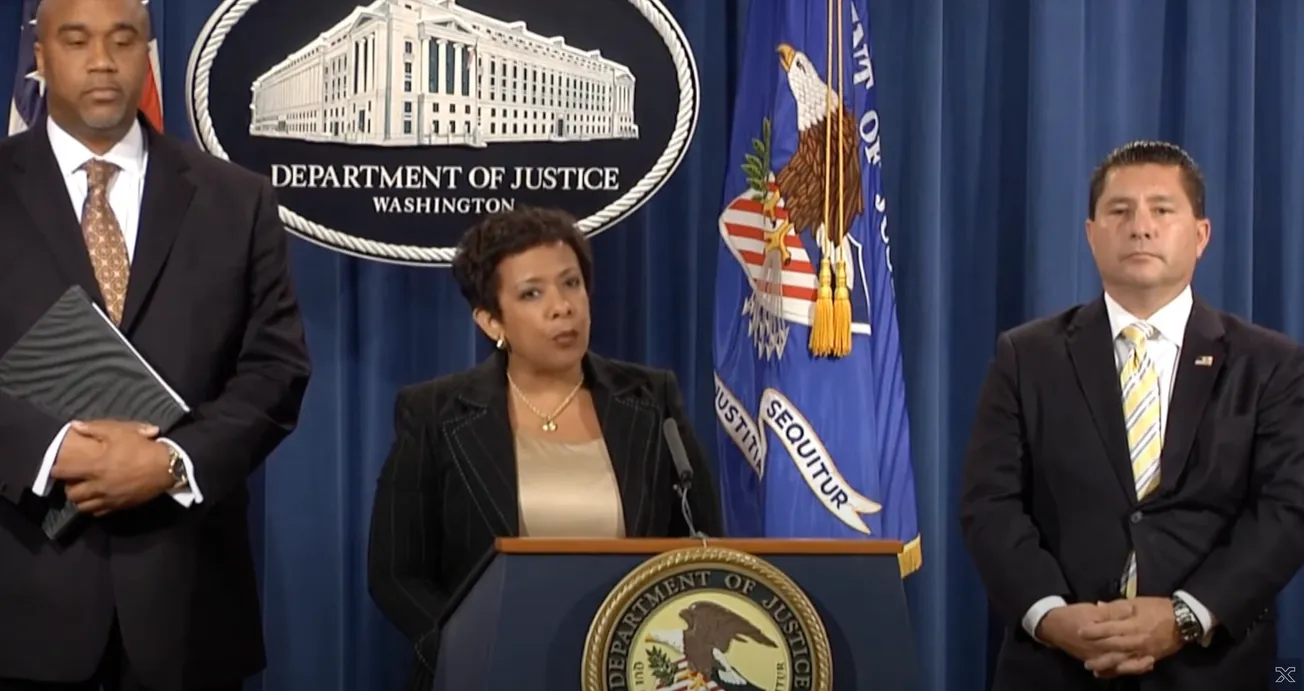Sports betting generated $490 billion in revenue during 2019, and this is forecast to rise to $770 billion by 2025. However, it is generally held that this amount is eclipsed by the amount of money wagered on the illegal market.
Due to its unregulated nature, estimating the amount of illegal sports bets wagered each year is tricky. However a United Nations Office on Drugs and Crime (UNODC) Report recently estimated that $1.7 trillion is wagered on illegal sports betting markets each year.
In other words, the value of the illegal sports betting market is over three times that of the regulated market. As the UNODC Report notes, organised crime’s involvement in illegal betting is equivalent in value to its involvement in drug, human, or arms trafficking.
Of course, the FAPL wants nothing to do with the illegal betting market, or its connections to criminality. But as we approach the third year of the Covid-19 pandemic, clubs are increasingly desperate for revenue. As such, many could be forgiven for being hypnotised by dollar signs.
Rule J.5 of the FAPL Handbook requires its clubs to notify the league about betting partnerships, but the League doesn’t regulate such partnerships. It also doesn’t regulate which betting companies can advertise at its grounds. This is a concern, as the dividing lines between legal and illegal betting are becoming increasingly blurred.
Jingle Balls
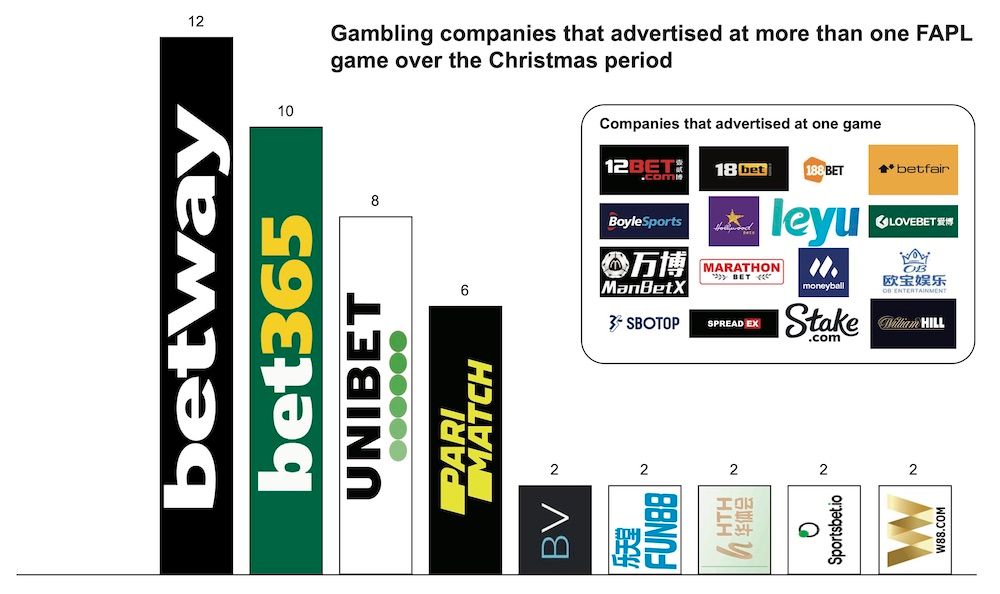
Twenty six sports betting websites appeared at the 20 FAPL stadiums over the Christmas period. Nine of these 23 betting companies advertised at more than one FAPL game, resulting in 63 separate sports betting company adverts on LED perimeter boards during the 20 game period.
As most LED boards feature a rolling display involving under 15 companies, at some games this involved an almost constant display of gambling advertising during the 90 minutes of on-field play. Some games featured doubly-stacked LED boards equivalent to the height of a player on the TV screen.
At Aston Villa vs. Chelsea on Boxing Day, five gambling companies advertised on perimeter LED boards in a near constant parade. In addition, OB Sports received extra coverage as Villa’s Sleeve Sponsor and PariMatch received match day branding due to its partnership with the club.
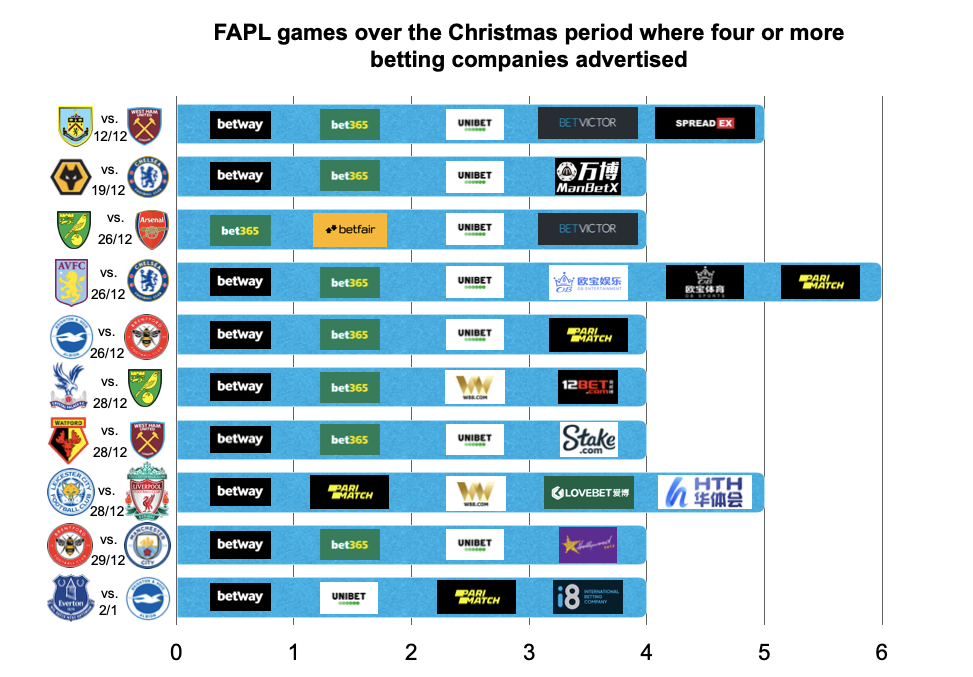
The level of betting company advertising during FAPL games makes a mockery of a ‘whistle to whistle’ TV ban voluntarily agreed by betting companies in 2019, and hailed as a success by the Betting and Gaming Council. It also calls in to question whether proposed UK Government crackdowns on betting sponsorship in football will be effective, unless they include LED perimeter boards.
Blurred lines
As well as appearing in English, OB Sport’s perimeter advertising at Villa Park also advertised OB.com in Mandarin. The advertised link redirects to www.obao76.com, which is entirely in Mandarin. Online gambling is illegal in China, however it is possible that the site may targeting Mandarin speakers in other countries.
According to a Mandarin disclaimer at the bottom of its homepage, OB.com – or obao76.com – is licensed by the Malta Gaming Authority (MGA), the British Virgin Islands Financial Services Commission, and the Philippine Amusement and Gaming Corporation (PAGCOR). According to the disclaimer, the OB.com brand is owned by Opel Entertainment.
A search through the MGA and PAGCOR internet sites doesn’t reveal any licences granted to OB.com or Opel Entertainment. None of the OB.com domains are listed on the MGA’s list of licensees. This raises questions as to whether the site is licensed at all.
Information about Opel Entertainment is hard to come by. However a popular Chinese singer, Jeff Chang, was recently forced to defend himself after it was reported that he had agreed a contract to promote a sports betting company. In a 30 December post on Chinese social media platform Weibo, Chang clarified that he had terminated the contract in March 21, which was limited to local use in The Philippines.
The sports betting company concerned with Chang’s faux pas? Opel Entertainment. The company also owns Oub121.com, again in Mandarin, which has exactly the same site layout as obao76.com and proudly displays its sponsorship deal with Aston Villa at the bottom of the page.
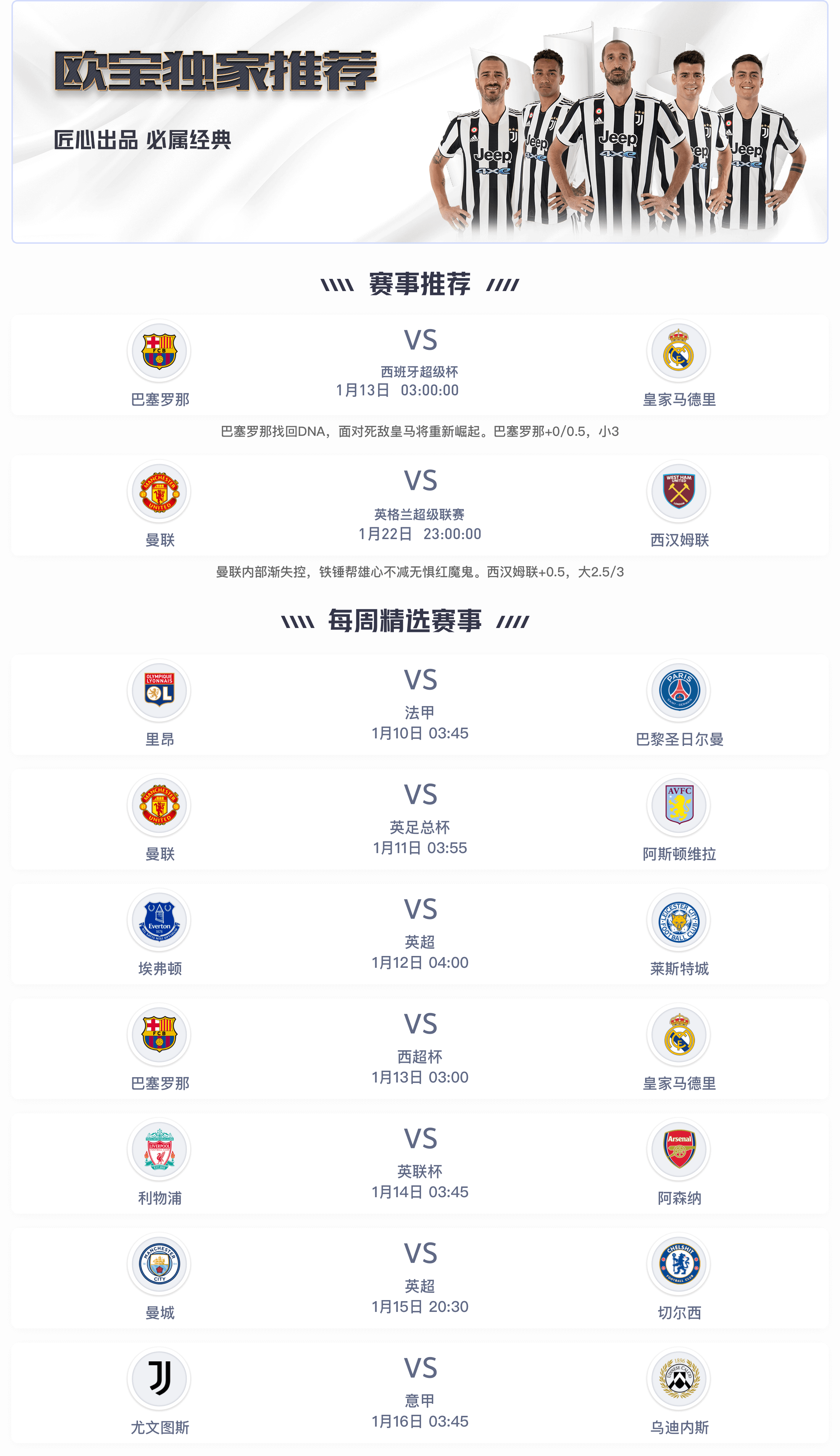
Accessing this website outside of Asia isn’t easy. Once registered using a Chinese mobile phone number, Oub121.com allows users to create a virtual wallet, which can be recharged using crypto currencies, many of which1 also advertised at FAPL grounds over the Christmas period. Once this is done, a betting window appears which allows users to both watch, and bet on, live sporting events.
As perviously mentioned, online gambling is illegal in China. It would therefore appear that in this particular case, FAPL perimeter LED boards have been used to advertise an application that allows Chinese residents to illegally place online wagers on sporting events.
Opel Entertainment isn’t the only company advertising sports betting to Asian audiences. W88.com is Crystal Palace’s betting partner, and also appeared on the LED perimeter boards at Crystal Palace vs. Norwich and Leicester City vs. Liverpool on 28 December. 12bet also appeared on the LED perimeter boards during Palace’s game against Watford on 28 December, advertising in both English and Mandarin.
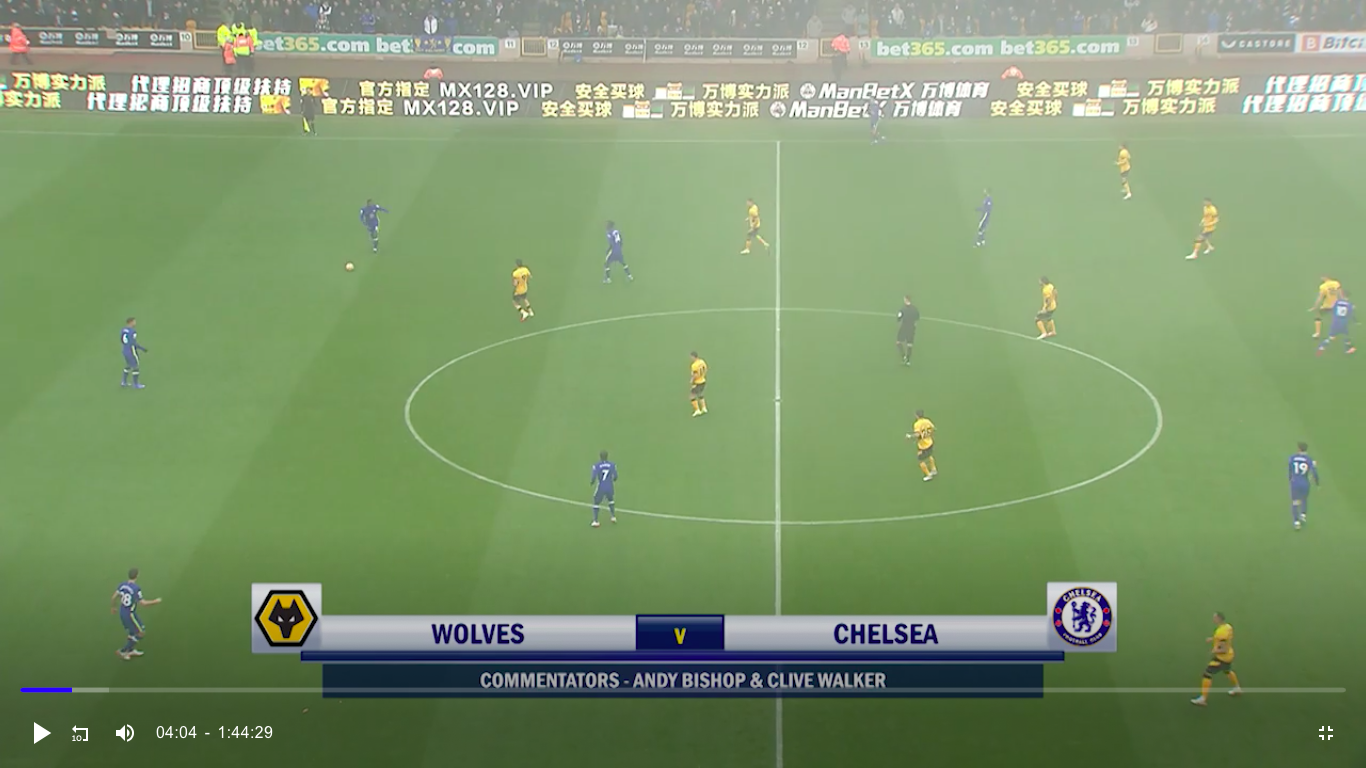
At Wolves’ foggy 19 December game against Chelsea, MX128.vip was advertised in Mandarin in doubly-stacked LED boards, with static advertising boards promoting gambling companies appearing above this. The MX128.vip site appears to be inaccessible from the UK, where it redirects to ManBetx.uk.
The reason for advertising the .vip domain in Mandarin is unclear. However in September 2020, the British Gambling Commission warned that it would consider banning ‘VIP customer’ schemes seeking to attract high value customers, as operators were failing to protect them from overspending.
ManBetx is owned by Vivaro, which operates a number of domains including Lovebet, which advertised at the Leicester City vs. Liverpool game on 28 December. Could ManBetx.uk be seeking VIP Asian customers through advertising at FAPL grounds? The company failed to respond to questions.
The licence roulette wheel
So how are companies such as Opel Entertainment allowed to advertise their sports betting OB.com brand in Great Britain if they aren’t licensed there? For nine of the 23 betting brands advertised over the Christmas period, the answer lies with a company based on the Isle of Man.
OB.com’s UK-facing site, www.oubao.co.uk, mentioned that it is ‘powered by’ TGP Europe, which is regulated by Great Britain’s Gambling Commission. The same is true for Fun88.co.uk; SBOtop.co.uk; SportsBetio.co.uk; Stake.uk.com; 12Bet.uk; HTHBet.co.uk; LeyuBet.co.uk; and i8Bet.co.uk.
TGP stands for The Gaming Platform (TGP), its internet site reveals. TGP Europe is not a gambling company, but a technology company that builds websites for clients. Its client page doesn’t mention its involvement with HTHBet, LeyuBet, or i8Bet, however its Gambling Commission licence page does.
This lists 31 domains, 14 of which are afforded ‘White Label’ status. This includes the nine betting operators powered by TGP Europe that advertised at Premier League grounds over the Christmas period. ‘White Label’ status allows a company licensed by the Gambling Commission to contract provisions of its licensed activities to third parties.
Under Article 1.1.2 of the Gambling Commission’s Licensing Conditions and Code of Practice, licensees are responsible for ensuring that third parties are ‘bound by the same licence conditions and subject to the same codes of practice as the licensee’. TGP Europe may have done this for the UK-facing domains listed on the Gambling Commission site, however not all sites connected to the nine TGP Europe brands are UK facing.
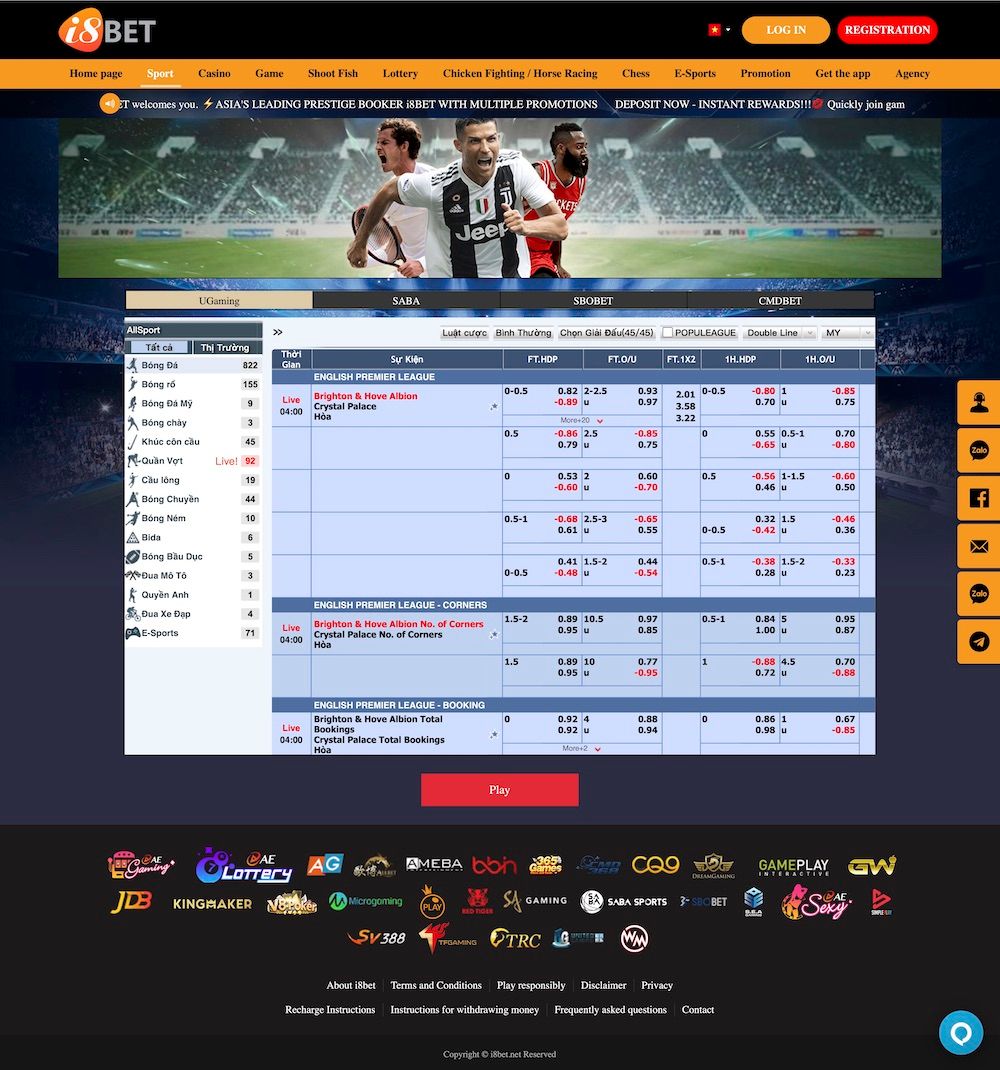
As previously mentioned there are questions about whether OB Sports’ Mandarin site, which featured on FAPL LED perimeter boards over the Christmas period, is licensed at all. At Everton’s game against Brighton on 2 January, i8Bet – also powered by TGP Europe – advertised in English, Thai, and Mandarin. Its UK site has yet to launch, but it was able to promote the Thai version of its site, which mentions that it is based in Costa Rica.
Online gambling is illegal in Thailand. Yet as the screenshot below shows, the Thai language version of its internet site offers odds on FAPL games, including on events such as corners and bookings. A disclaimer on its internet site mentions that it is the customer’s responsibility to ensure that gambling is legal at their location. Of course like OB.com, another brand in the TGP Europe stable, i8Bet may just be advertising to speakers of Mandarin and Thai.
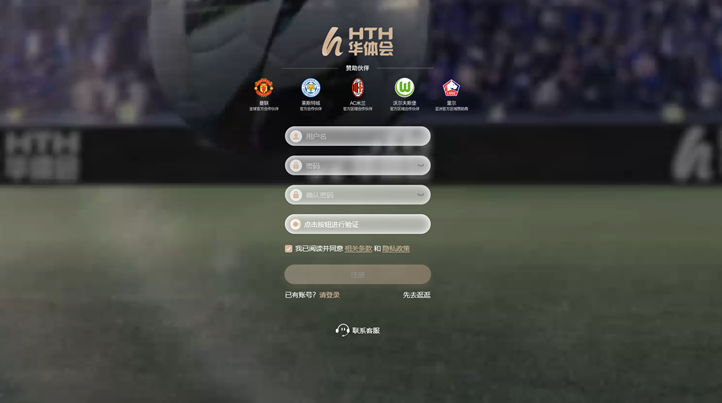
HTHBet.co.uk is another gambling brand powered by TGP Europe. However at Leicester vs. Liverpool on 28 December and at Manchester United vs. Burnley on 30 December, HTH367.com also advertised in Mandarin. The site now redirects to HTHBet.co.uk but at the time of the match, redirected to a Mandarin version of the site that features the same interface as the Mandarin version of OB Sport’s site.
The HTH367.com internet site is geoblocked in the UK, however it mentions that HTH is the Global Official Partner of Manchester United; the Official Partner of Leicester City; the Official Regional Partner of AC Milan; the Official Regional Partner of Wolfsburg; and the Official Asian Sponsor of Lille. An ‘About Us’ section of the website mentions that the site is owned by a company called China Experience Technology (华体会). Its corporate website lists its address as RCBC Plaza, Tower 2, Manila, Philippines. The building management company confirmed that it doesn’t have China Experience Technology, 华体会, or HTH registered as holding offices.
Like obao76.com, HTH367.com mentions that it is licensed by the MGA, PAGCOR, and the BVI Financial Services Commission. Like obao76.com, a search through the MGA and PAGCOR internet sites doesn’t reveal any licences granted to China Experience Technology or HGH. None of the HTH domains are listed on the MGA’s list of licensees.
Fun88 is another gambling brand powered by TGP Europe. At Tottenham vs. Crystal Palace on Boxing Day it advertised Fun369.com, which when accessed through Google (i.e. not directly) redirects to J9.com, the international basketball federation’s (FIBA) betting partner. As previously reported, there are serious questions about whether this site is licensed at all.
However at Chelsea’s victory over Tottenham in the Carabao EFL Cup semi-final on 12 January, the Mandarin advertised Fun88 domain had changed to Fun279.com. This links to a Mandarin sports betting application listing Fun88’s shirt sponsorship with Newcastle United and an Asian betting partnership with Tottenham.
In November, Tottenham renewed its partnership with Fun88. We asked the club if it was aware that adverts at its Stadium were apparently used to promote J9.com.
Ghost chasing
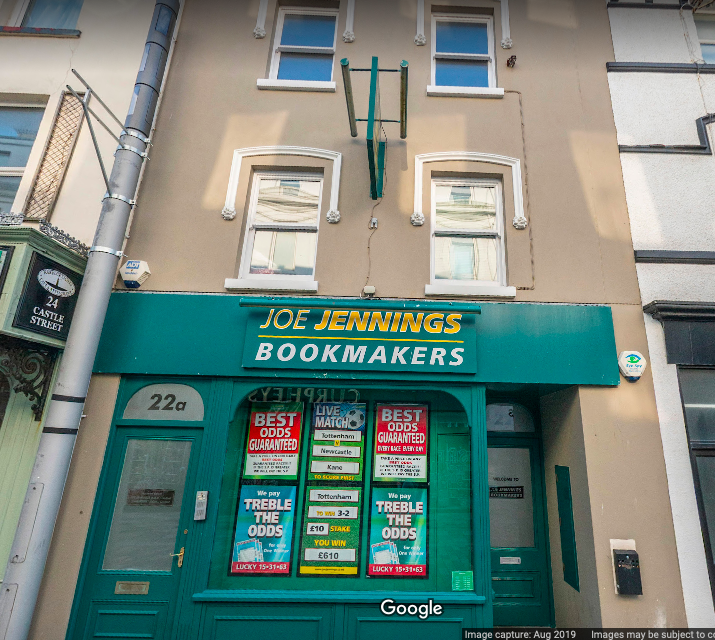
TGP Europe’s registered address is a small office above a betting shop on the Isle of Man. Google Maps reveals that this is an address for a bookmaker.
From such a small base, can TGP Europe be expected to have effective oversight of all the gambling brands promoted by its partners at FAPL grounds? It doesn’t even appear to have effective oversight of its partners.
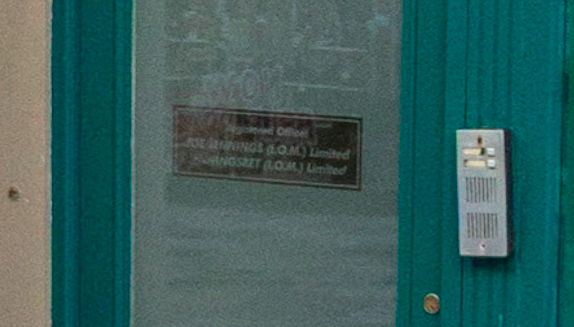
Yabo Sports, a TGP Europe client, boasts Manchester United; Hertha Berlin, AS Monaco, Leicester City and Bayern Munich amongst its partners, which also include the Argentina national team; Italy’s Serie A; and the Copa América. It appears that its site has now been rebranded as Betvision.com, another site ‘powered by’ TGP Europe, after questions were raised about the identity of executives that appeared at sponsorship launches.
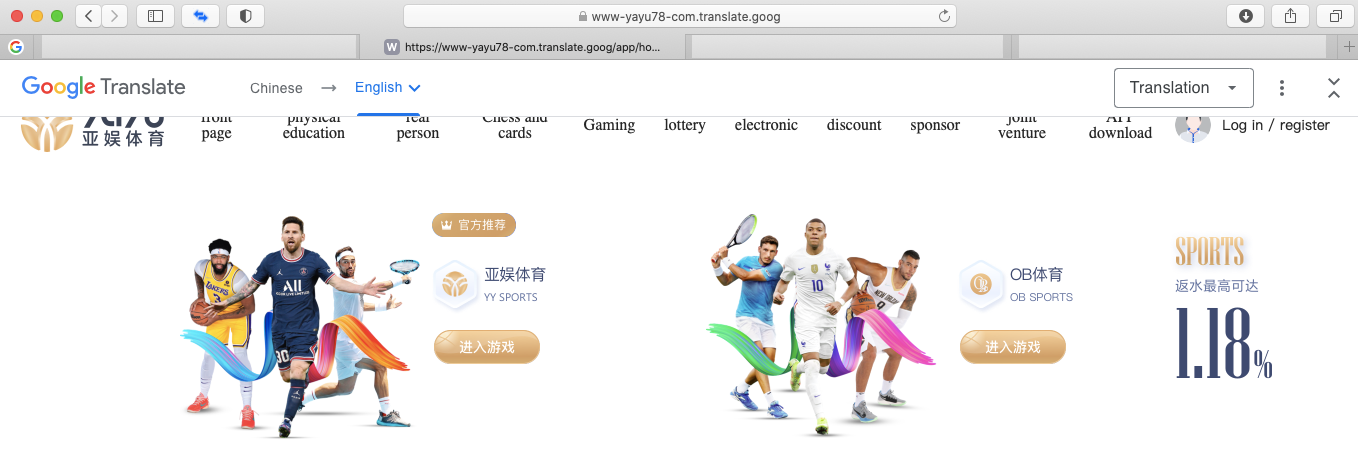
There appears to be no mention of Yabo Sports on Manchester United’s internet site or on Serie A’s list of partners. However, Hertha Berlin lists YaYu.com on its partner list, which is geoblocked from UK access. A media statement mentions that YaYu is a ‘leading provider of online sports entertainment services’. however the site can be accessed through Google Translate which shows that it is a gambling site that has connections to OB Sports, which appears to offer sports betting opportunities (see above).
Another new arrival on the scene is Midnight Gaming, whose W88 brand is Crystal Palace’s sleeve sponsor. As mentioned, it appeared on LED perimeter boards at the London club’s 28 December game against Norwich City; and at Leicester City’s game against Liverpool on the same day.
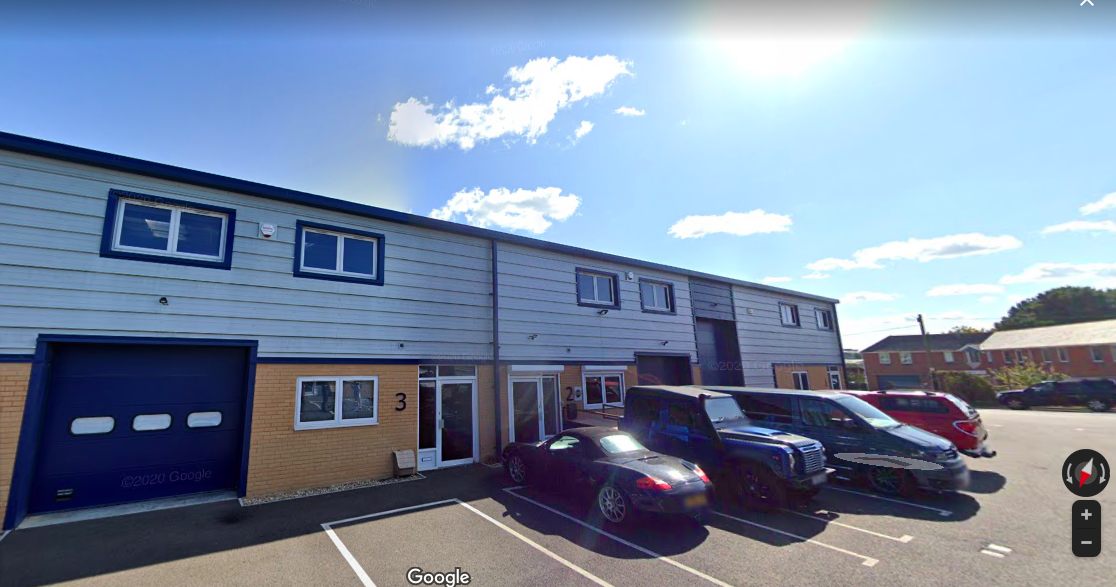
The Gambling Commission lists an address in Poole, Dorset, as the company’s head office. This is also the address of another company licensed by the Gambling Commission to supply remote gambling software, AliQuantam Gaming Limited. The same Poole address is also listed as an office by gambling payment platform Hexopay.
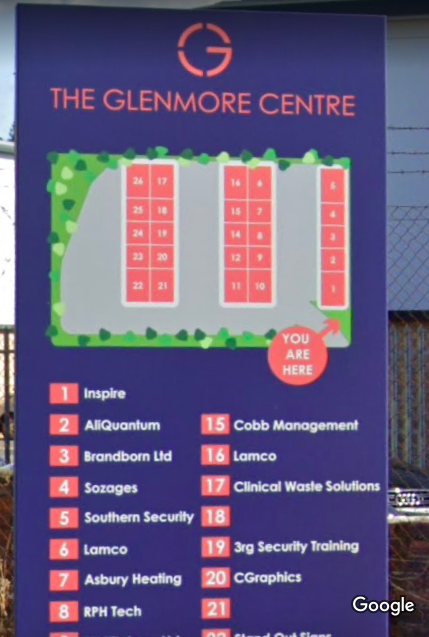
A search on Google Maps reveals that AliQuantam Gaming is the only company registered at this address. AliQuantam’s internet site reveals that it is a gaming platform provider, similar to TGP Europe. However, the UK government’s Companies House lists AliQuantam Gaming as dissolved in 2010.
Companies House lists Midnight Gaming as owned by AliQuantam and a previous company name, Sporting Black Limited. It also shows that Midnight Gaming transferred its address from London to Poole in September 2020. It also confirms that the main company Director is Alan Hilliard Ehrlich.
Analysis of Companies House documents reveals that Ehrlich resides in Israel and in 2013, was Head of Poker Networks at PartyGaming. In 2011, PartyGaming merged with Bwin, and is now operated by Entain.
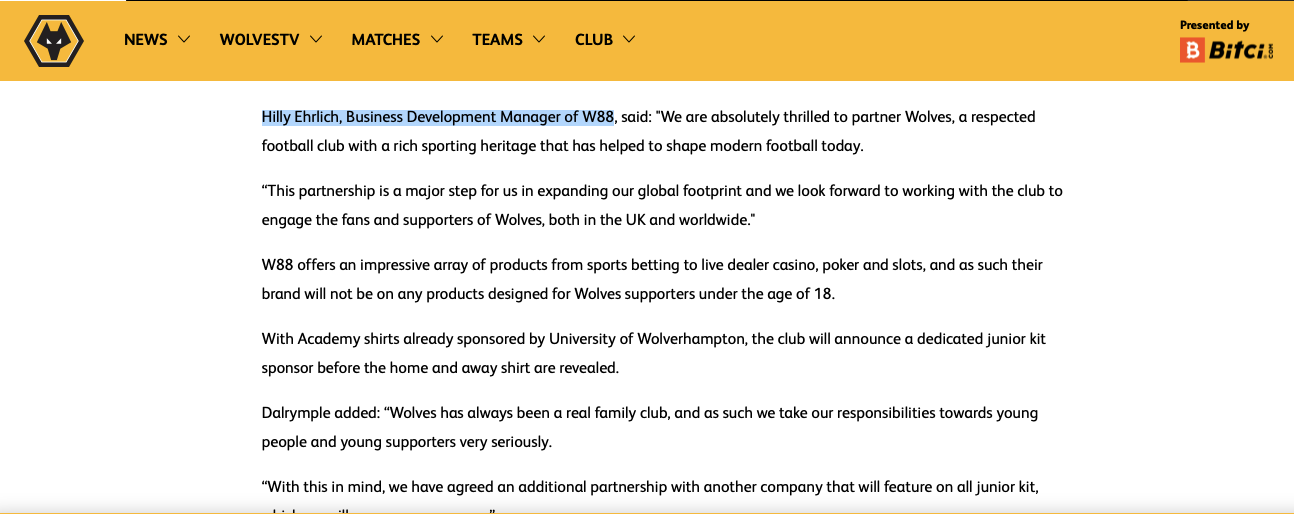
A ‘Hilly Ehrlich’ was mentioned as the Business Development Manager of W88.com by Wolverhampton Wanderers, when it announced its partnership with the betting brand in 2018. This interview confirms that ‘Hilly Ehrlich’ was also Head of Poker Networks at PartyGaming.
In addition, AliQuantam Gaming appears to be behind an old website linked to both W88 and BR88. Again, the Poole address of AliQuantam Gaming is listed. BR88 was confirmed as Villa’s sleeve sponsor in 2019. Hilly Ehrlich was also mentioned when the club agreed an apparently separate deal with W88 in June 2019.
AliQuantam’s internet site mentions that it is licensed in Malta. However a search of the MGA’s internet site for either AliQuantam, Midnight Gaming, or BR88 again yields no results. An internet search suggests that W88 may be owned by Marquee Holdings, whose shareholders are listed in the Panama Papers.
W88 isn’t the only company connected to FAPL advertising mentioned in the Panama Papers. Vivaro, which operates ManBetX and LoveBet, is also listed. Of course, being listed in the Panama Papers only shows that companies hold offshore bank accounts and doesn’t suggest any criminal activity.
The analysis above is designed to show the difficulty that FAPL clubs have in establishing who is behind the betting brands that advertise on their shirts and at their grounds. And if top FAPL clubs have difficulty, it can be assumed that the problem is likely to be worse further down the football pyramid. So what do the FAPL and the Gambling Commission have to say about the situation?
Not my job
The FAPL only regulates the visual aspects of LED perimeter boards, and advised The Sports Integrity Initiative that it is up to clubs to ensure that they remain within the law. There are no restrictions on use of double LED boards, as utilised for Wolves vs. Chelsea through the home club’s partnership with ADI. The FAPL said it doesn’t permit use of virtual technology to replace advertising featured on LED boards with other brands in non-UK TV markets, although this appears to be contradicted by observers.
LED boards are not sold centrally, but some FAPL clubs use third party agencies2 to sell aggregated minutes via multi-club packages. This perhaps explains why LED perimeter advertising at some stadiums appears to be very similar.
‘Online gambling operators are required to hold a Gambling Commission licence to transact with British based consumers’, read a reply from a Gambling Commission spokesperson to a series of questions. ‘If we find an unlicensed operator acting illegally we will take action. A sports body engaging in sponsorship arrangements with an unlicensed remote operator may be liable for the offence of advertising unlawful gambling if the remote gambling activity isn’t blocked to consumers in Great Britain and that this is clear to consumers.
‘We’re of the view that the best way for sports bodies to protect themselves against this risk is to ensure that they only promote gambling operators licensed by us. It is for the owner of the advertising space to satisfy themselves that they are not committing the offence of advertising unlawful gambling.’
Most of the betting brands that featured at FAPL stadiums over the Christmas period have a UK-facing site, often licensed through a White Label agreement with a third party. However as shown above, many of these also have overseas facing websites and mobile applications.
Who is responsible for ensuring that all of these overseas facing websites and mobile applications, often advertised in languages other than English, are legitimate? According to the FAPL, the Gambling Commission is responsible. According to the Gambling Commission, the FAPL clubs are responsible. As the above demonstrates, it appears that nobody is taking responsibility.
The opaque situation that surrounds White Label domains perhaps explains why the UK Government is reviewing their status as part of its Gambling Review. Concerned about gambling’s relationship with sport and football in particular, UK Gambling Minister Chris Philp will meet with sporting bodies next week. England’s Football Association (FA) has already prohibited betting companies from streaming FA Cup games after Bet365.com’s current deal expires at the end of the 2024/5 season.
Of course, it’s perfectly legitimate for FAPL clubs to have legal, regulated Asian betting partners. However this article demonstrates the difficulty that clubs face in assessing who is behind such companies, and in ensuring that such partners are not advertising illegal services in foreign languages. And until the FAPL and British Gambling Commission reassert control over this area, draconian restrictions are a real possibility.
The production of this article was part of an investigation supported by a grant from the Investigative Journalism for Europe (IJ4EU) fund.

Footnotes
1. AstroPay, which advertises in a video on its gaming page that it is an expert in ‘hard to reach’ markets such as Brazil and India, advertises on FAPL LED boards. BitCi also advertises on FAPL LED boards, as did Socios.com at Crystal Palace’s 28 December game against Norwich, despite a 22 December Advertising Standards Authority ruling that an Arsenal advert for the company breached its Social Responsibility Code. Kyber Network, Alchemy Markets, CorPay and other cryptocurrency products also featured on FAPL LED perimeter boards.↩
2. We could only find one third party agency used to sell LED perimeter boards at FAPL grounds – Project11.↩



